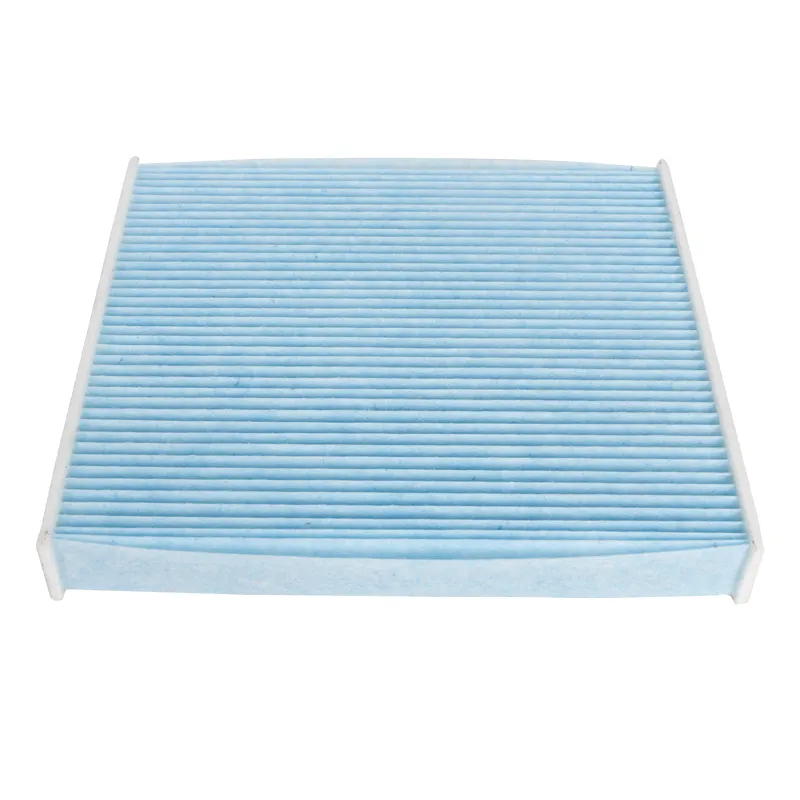Oct . 02, 2024 21:15 Back to list
Choosing the Right Air Filter Dryer for Optimal Performance in China
The Importance of Air Filter Dryers in China
As industrialization continues to soar in China, the demand for high-quality air filtration systems has become increasingly vital. Among these, air filter dryers play a crucial role in ensuring efficient operation across various sectors including manufacturing, pharmaceuticals, and food processing. This article explores the significance, working principles, and applications of air filter dryers, particularly in the context of China’s rapidly growing economy.
Understanding Air Filter Dryers
Air filter dryers are specialized devices designed to remove moisture, dust, and other contaminants from compressed air systems. They serve dual purposes filtering particulates from the air and drying the air to prevent water accumulation. By ensuring clean and dry air, these devices enhance the performance and longevity of machinery and equipment, ultimately leading to improved production efficiency.
The Necessity in Industrial Applications
In China, industries ranging from automotive to electronics heavily rely on compressed air systems. These systems are integral to powering pneumatic tools, conveying materials, and operating machinery. However, the presence of moisture in compressed air can lead to corrosion, reduced efficiency, and costly repairs. This is where air filter dryers become indispensable.
By effectively removing moisture, air filter dryers help maintain the quality of the compressed air. They prevent rust and scaling within pneumatic tools, reduce energy consumption, and minimize operational downtime. As a result, industries that implement air filter dryers can achieve higher productivity and better product quality.
Types of Air Filter Dryers
There are several types of air filter dryers employed in various industrial applications. The most common include
china air filter dryer

1. Refrigerated Air Dryers These units cool the compressed air to condense the moisture. They are widely used due to their low operational costs and reliability. However, their efficiency decreases at low temperatures, making them less suitable for certain applications.
2. Desiccant Air Dryers Utilizing moisture-absorbing materials, these dryers can achieve very low dew points, making them ideal for sensitive applications such as pharmaceuticals and food processing. They are slightly more expensive but provide superior performance in critical environments.
3. Membrane Air Dryers These dryers use selectively permeable membranes to separate moisture from the air. They are compact and energy-efficient, making them suitable for small-scale applications or where space is limited.
Each type of air filter dryer has its unique features and advantages, making it essential for industries to choose the right system based on their specific needs.
Environmental Benefits
In addition to operational advantages, air filter dryers contribute to environmental sustainability. By ensuring the efficient use of compressed air, they help reduce energy wastage. This is particularly significant in China, where energy conservation has become a key focus for the government, especially in the context of reducing carbon emissions and promoting green technologies.
Conclusion
With China's continuous economic development, the importance of air filter dryers cannot be overstated. These devices are paramount in enhancing the efficiency, reliability, and longevity of industrial operations. As industries continue to adopt advancements in technology, the integration of high-quality air filter dryers will play a crucial role in ensuring sustainable growth.
Investing in these systems not only fosters operational excellence but also contributes to the broader objectives of energy conservation and environmental stewardship. As manufacturers and industries strive to meet the increasingly stringent quality standards and environmental regulations, the adoption of air filter dryers stands out as a crucial strategy in China's industrial landscape. The future of industry in China is bright, and air filter dryers will undoubtedly be part of that journey toward innovation and sustainability.
-
Toyota Corolla Hatchback Cabin Air Filter – High Efficiency & Easy Installation
NewsJul.08,2025
-
Premium Canister Fuel Filter Supplier High Quality Oil Filtration Solutions
NewsJul.08,2025
-
Premium Car Filter Oil Solutions Leading Car Oil Filter Exporter Hyundai Car Oil Filter Exporters
NewsJul.08,2025
-
Buy 17x21x1 Air Filter – Improve Air Quality & HVAC Efficiency Affordable Air & Cabin Air Filter Cost
NewsJul.07,2025
-
High-Performance Filter Element Fuel – Durable, Efficient & Cost-Effective Solutions
NewsJul.07,2025
-
High-Quality Engine Filter and Cabin Filter for Superior Airflow Affordable Cabin and Engine Air Filter Cost
NewsJul.07,2025


